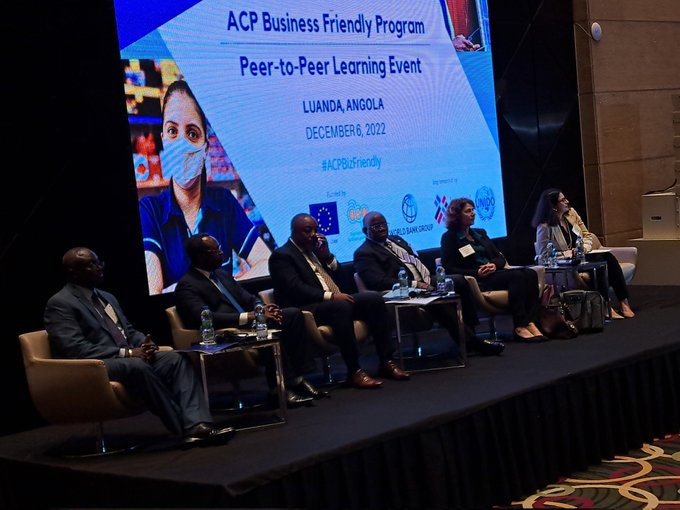By Pita Ligaiula in Luanda, Angola
The World Bank says the rising inflation exacerbated by the war in Ukraine are challenging times for the global economy and for developing countries.
Speaking at the ACP-EU Business Friendly programme in Luanda, World Bank Country director Albert Zeufack said the economic growth in Sub-Saharan Africa is set to decelerate from 4.1 percent in 2021 to 3.3 percent in 2022.
“As a result of a slowdown in global growth, rising inflation exacerbated by the war in Ukraine, adverse climate conditions, tightening in global financial conditions, and the rising risk of debt distress.
“The looming threat of stagnation worldwide amid a landscape of multiple new and covariate shocks emphasises the need for policymakers to implement policies that accelerate structural transformation through productivity-enhancing growth and that create more and better jobs,” Zeufack told business leaders.
Given these circumstances, we need strong private sectors to continue to generate exports, create jobs, and boost economic activity, he said.
Zeufack said a key ingredient for having a thriving private sector is providing an enabling and supportive business environment.
“Entrepreneurs, businesses and investors – be they domestic or foreign – need clear and predictable policies and rules, effective and well-governed institutions, and efficient and transparent public services. These are among the key conditions which help countries foster private sector-led growth.
“And these are all areas where we can make a difference, where we can affect change. Some things you cannot change — you cannot change whether your country is landlocked, whether it is endowed with natural resources, or whether it offers a sizeable market for business activity within its national borders.
“But policies, rules and regulations can and do change with one stroke of a pen when new legislation is signed. It is called a reform, and I know all of us are in the business of championing successful reforms,” he said.
Zeufack said policy reforms need to be followed by effective implementation and enforcement.
“That takes more time and effort as it involves functioning institutions with efficient and transparent processes. But it is still an area where we all – with sustained and committed effort –can make a difference and affect positive change.
“And that is why we are here today for a series of exchanges on how to improve business environments in the ACP countries. I hope we will all capitalise on this opportunity to share and exchange experiences in terms of what works and what does not work in successful policy design and implementation.
Let us seize this opportunity to learn from each other, to inspire each other, and to work together towards a bright future for the countries represented here today,” said Zeufack.
SOURCE: PACNEWS















